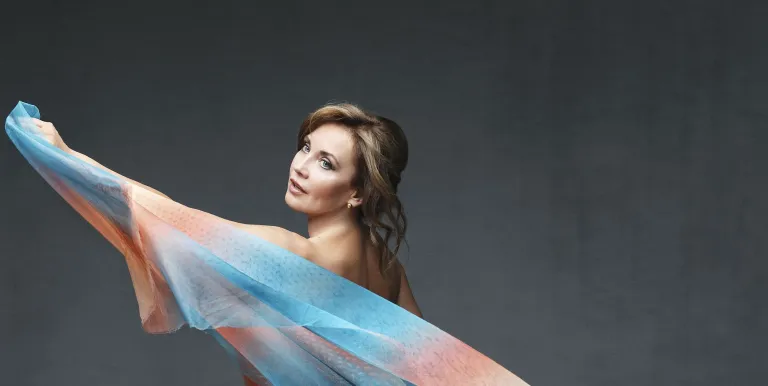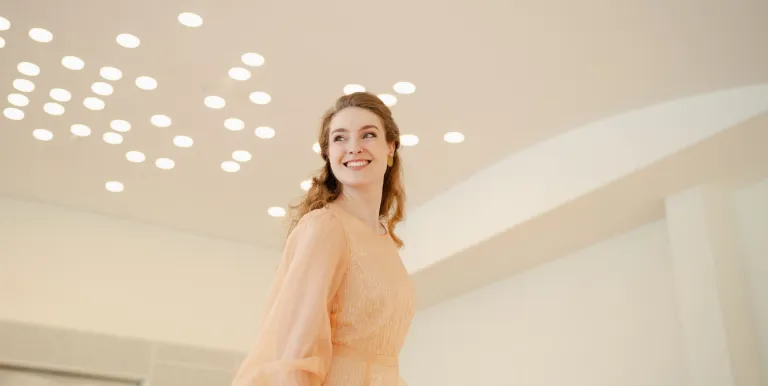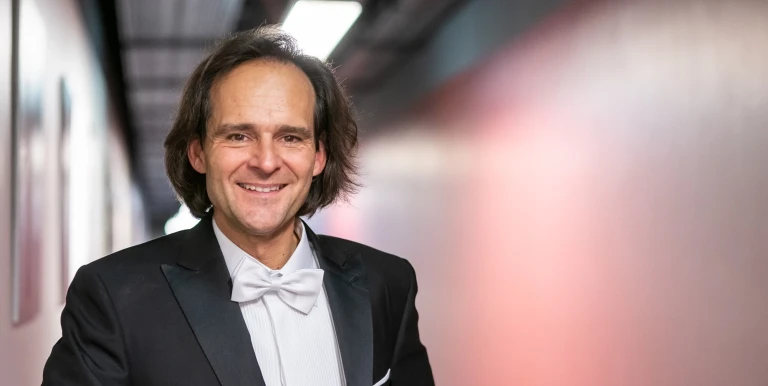one interval
Conductor:
Featuring:
Dvořák
Slavonic Dance in G-minor, op. 46, No. 8
Lehár
Giuditta - Freunde, das Leben ist lebenswert!
Kálmán
Die Csárdásfürstin - Sylvia's entrance
Kálmán
Gräfin Mariza - Komm, Zigan
J. Strauss
Die Fledermaus
- Quadrille
- Orlovsky's aria
Lehár
Die lustige Witwe - Lippen schweigen
Lehár
Das Land des Lächelns - Dein ist mein ganzes Herz
Moyzes
Dances from Pohronie, op. 43 - 4th movement
Kálmán
Gräfin Mariza - Wenn es Abend wird (Grüß mir mein Wien)
Lehár
Die lustige Witwe
- Vilja-Lied
- Danilo's entrance
Moniuszko
Halka - Mazurka
J. Strauss
Der Zigeunerbaron - Czipra's Prediction
Lehár
Giuditta - Giuditta's entrance
Operetta is a multinational genre: we know of French and British operettas, but we can also list Italian, Spanish and Russian works under the genre. Yet it would not be wrong to say that the operettas of Central and Eastern Europe represent a particularly rich vein of shared cultural treasures for the peoples of the region.
Citizens of the Austro-Hungarian Empire created - in part after the empire ceased to exist - classical works of the golden and silver ages of operetta. The programme for this gala concert features a selection of these hits, many of which remain popular to this day. Andrea Rost began her career in the late 1980s, when she received a scholarship from the Hungarian State Opera. The Hungarian soprano rapidly conquered the opera houses of the world - from the Vienna Staatsoper to La Scala in Milan, and from the New York Metropolitan Opera to Japan. Her repertoire extends from legendary Mozart works to Rigoletto's Gilda, and now even includes the title roles of Madama Butterfly and Tosca. Katarzyna Kuncio was a student of Walter Berry in Vienna and won an international competition in Osaka as an inspired interpreter of Schubert Lieder in 1997. The Polish mezzo-soprano has been a member of the Deutsche Oper am Rhein company since 2004 and is a genuine master of trouser roles, such as Cherubino, Octavian and the opera fairy tale character of Hansel. Richard Samek made his debut in Brno in 2006. His tenor voice is not only celebrated by Czech and Slovak opera audiences, but is also recognised by those of Germany and France. The young Czech tenor frequently features in operetta performances from the Mörbisch Lakeside Festival to Dresden. Austrian baritone Clemens Unterreiner has been a member of the Vienna State Opera since 2005. His operatic repertoire ranges all the way to contemporary composers and includes lyrical, German, Italian and French helden roles. He also performs in oratorios and song recitals, and often takes the stage in operettas.
The program is organised on behalf of the Public Foundation for Research on Central and Eastern European History and Society within the framework of the Hungarian Presidency of the Visegrad Group 2017/2018.
Presented by: Müpa Budapest
-
We wish to inform you that in the event that Müpa Budapest's underground garage and outdoor car park are operating at full capacity, it is advisable to plan for increased waiting times when you arrive. In order to avoid this, we recommend that you depart for our events in time, so that you you can find the ideal parking spot quickly and smoothly and arrive for our performance in comfort. The Müpa Budapest underground garage gates will be operated by an automatic number plate recognition system. Parking is free of charge for visitors with tickets to any of our paid performances on that given day. The detailed parking policy of Müpa Budapest is available here.










